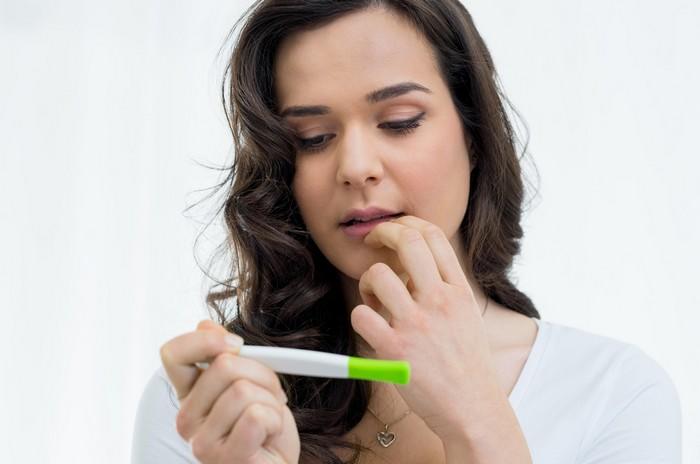Getting pregnant is a significant and often exciting journey, but for many, it can be challenging. While medical interventions are available, many individuals and couples seek natural methods to enhance their chances of conception. This article provides detailed insights into natural ways to get pregnant quickly, focusing on lifestyle changes, tracking ovulation, and optimizing overall health.
The Path to Natural Conception
Why Choose Natural Methods?
Natural methods for conception involve making lifestyle adjustments and using various techniques to increase the chances of becoming pregnant without relying on medical treatments. These methods are often preferred for their holistic approach and focus on overall well-being. Natural conception strategies can be effective and may also improve general health, which supports reproductive function.
Understanding the Basics of Fertility
To conceive naturally, it’s essential to understand the basics of fertility. Conception occurs when a sperm fertilizes an egg released from the ovary. The timing of this process is crucial, as the egg is only viable for about 24 hours after ovulation, while sperm can survive in the reproductive tract for up to five days.
Optimizing Timing and Ovulation
1. Track Your Menstrual Cycle
Tracking your menstrual cycle helps identify your most fertile days. The average cycle is about 28 days, but it can vary. The key to natural conception is to understand when ovulation occurs.
How to Track:
Cycle Length: Count the days from the start of one period to the start of the next. This helps estimate the timing of ovulation.
Menstrual Calendar: Use a calendar to record cycle length and any variations. Apps and online tools can also assist in tracking.
2. Identify the Fertile Window
The fertile window is the period when you are most likely to conceive. It includes the five days leading up to ovulation and the day of ovulation itself.
How to Identify:
Ovulation Prediction: Ovulation typically occurs around the midpoint of your cycle. For a 28-day cycle, this is usually between days 12 and 16.
Cervical Mucus: Observe changes in cervical mucus. Around ovulation, it becomes clear, stretchy, and similar to egg whites.
Basal Body Temperature (BBT): Track your BBT daily. A slight rise in temperature indicates that ovulation has occurred.
3. Use Ovulation Prediction Kits
Ovulation prediction kits (OPKs) test urine for the surge in luteinizing hormone (LH) that occurs shortly before ovulation. A positive result indicates that ovulation will happen within the next 12 to 36 hours.
How to Use:
Test Regularly: Begin testing a few days before your expected ovulation.
Follow Instructions: Use the kit according to the manufacturer’s guidelines for accurate results.
Enhancing Fertility Through Lifestyle Changes
1. Maintain a Healthy Diet
A balanced diet supports reproductive health. Focus on foods rich in essential nutrients and vitamins.
Key Nutrients:
Folic Acid: Essential for fetal development and found in leafy greens, legumes, and fortified cereals.
Iron: Supports healthy blood flow and can be found in lean meats, beans, and spinach.
Healthy Fats: Include sources of omega-3 fatty acids, such as fish and flaxseeds, which support hormone production.
2. Exercise Regularly
Moderate exercise contributes to overall health and can improve fertility. Aim for regular physical activity without overdoing it, as excessive exercise can negatively impact reproductive hormones.
Exercise Recommendations:
Frequency: Engage in at least 150 minutes of moderate exercise per week.
Types: Incorporate a mix of cardio, strength training, and flexibility exercises.
3. Manage Stress
Stress can impact hormonal balance and fertility. Finding ways to manage stress can enhance your chances of conception.
Stress Management Techniques:
Relaxation: Practice mindfulness, meditation, or deep breathing exercises.
Hobbies: Engage in activities you enjoy to help reduce stress levels.
4. Avoid Harmful Substances
Certain substances can negatively affect fertility. Avoiding or minimizing their use can support reproductive health.
Substances to Avoid:
Caffeine: Limit intake to moderate levels.
Alcohol: Reduce or eliminate consumption.
Smoking: Avoid smoking, as it can impair fertility.
Creating a Conducive Environment for Conception
1. Have Regular Intercourse
Regular intercourse during your fertile window increases the chances of sperm meeting the egg. Aim for intercourse every 2 to 3 days throughout the cycle to maximize opportunities for conception.
2. Use Lubricants Wisely
Certain lubricants can affect sperm motility and hinder conception. If using a lubricant, choose one that is sperm-friendly or avoid using them altogether.
3. Maintain a Healthy Weight
Both underweight and overweight conditions can affect fertility. Achieving and maintaining a healthy weight can improve reproductive function.
Weight Management:
Healthy Range: Aim for a body mass index (BMI) within the normal range.
Balanced Diet and Exercise: Combine a healthy diet with regular exercise to manage weight.
see also: What Are the Reasons for Not Conceiving?
Consulting Healthcare Professionals
1. Seek Professional Advice
If you have been trying to conceive for over a year without success, it may be time to consult a healthcare provider. They can assess any underlying health issues and offer additional guidance.
2. Consider Fertility Testing
Healthcare providers may recommend fertility testing to identify potential issues. Tests can include hormone evaluations, semen analysis, and imaging studies to assess reproductive health.
3. Explore Fertility Treatments
If natural methods are not yielding results, your healthcare provider may discuss additional fertility treatments. Options include medications, hormone therapies, or assisted reproductive technologies.
Conclusion
Getting pregnant quickly through natural methods involves understanding and optimizing various factors that influence fertility. By tracking your menstrual cycle, identifying the fertile window, making healthy lifestyle changes, and managing stress, you can enhance your chances of conception.
Maintaining a balanced diet, exercising regularly, and avoiding harmful substances contribute to overall reproductive health. Additionally, creating a conducive environment for conception through regular intercourse and appropriate lubricants can support your efforts.
If challenges persist, consulting a healthcare provider can provide valuable insights and options for further assistance. With the right approach and support, many individuals and couples can successfully achieve their goal of becoming parents.
Related topics:

























